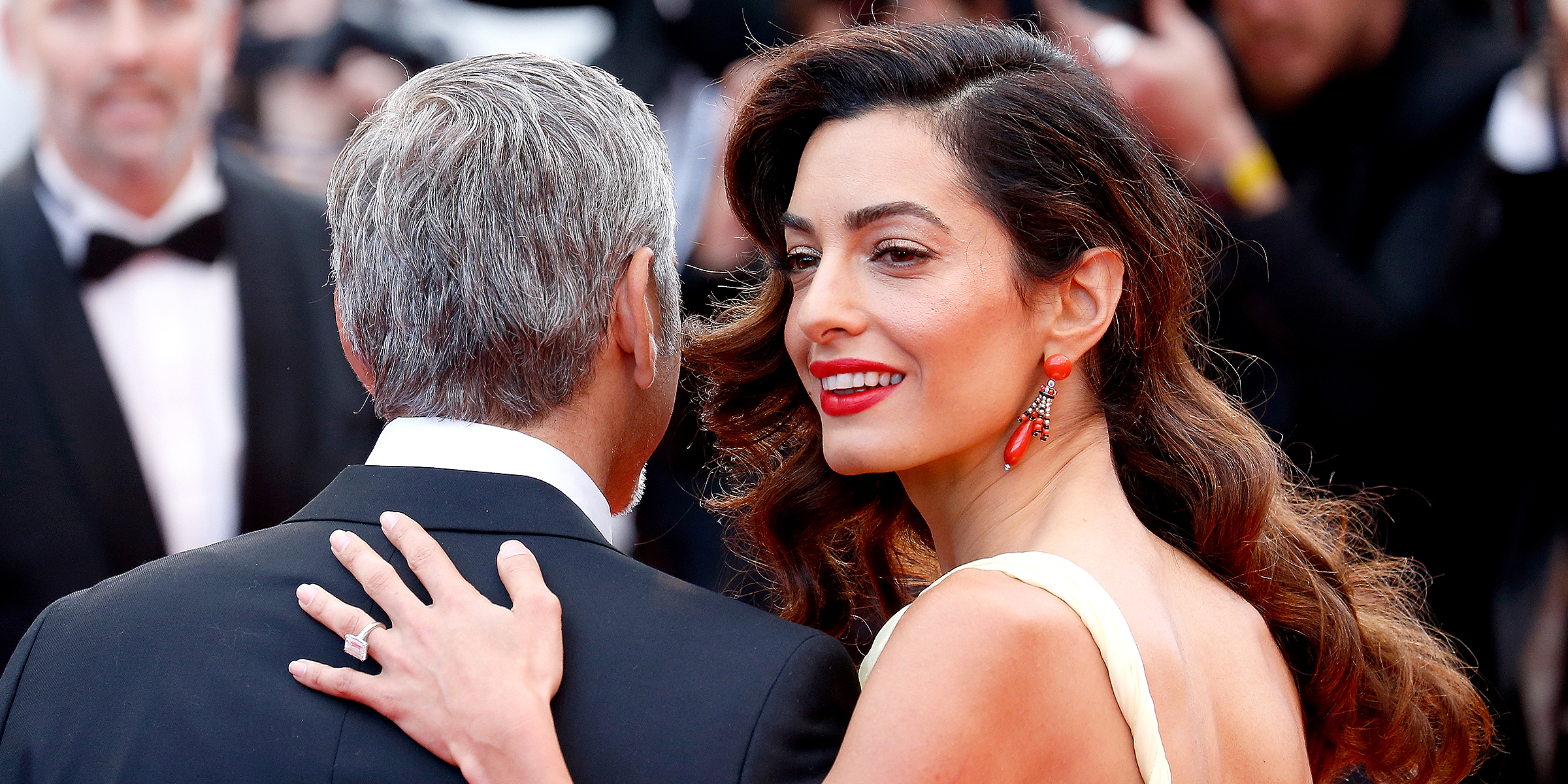
Celebrities Were Kicked out of Cannes Festival for Wearing Wrong Shoes: 3 Strict Rules That Caused Uproar
The Cannes Festival is one of the most glamorous film festivals. While the event serves as an exciting meeting point for actors, directors, and producers, each year brings a new wave of rules and regulations, which have caused a bit of controversy and protests in the past.
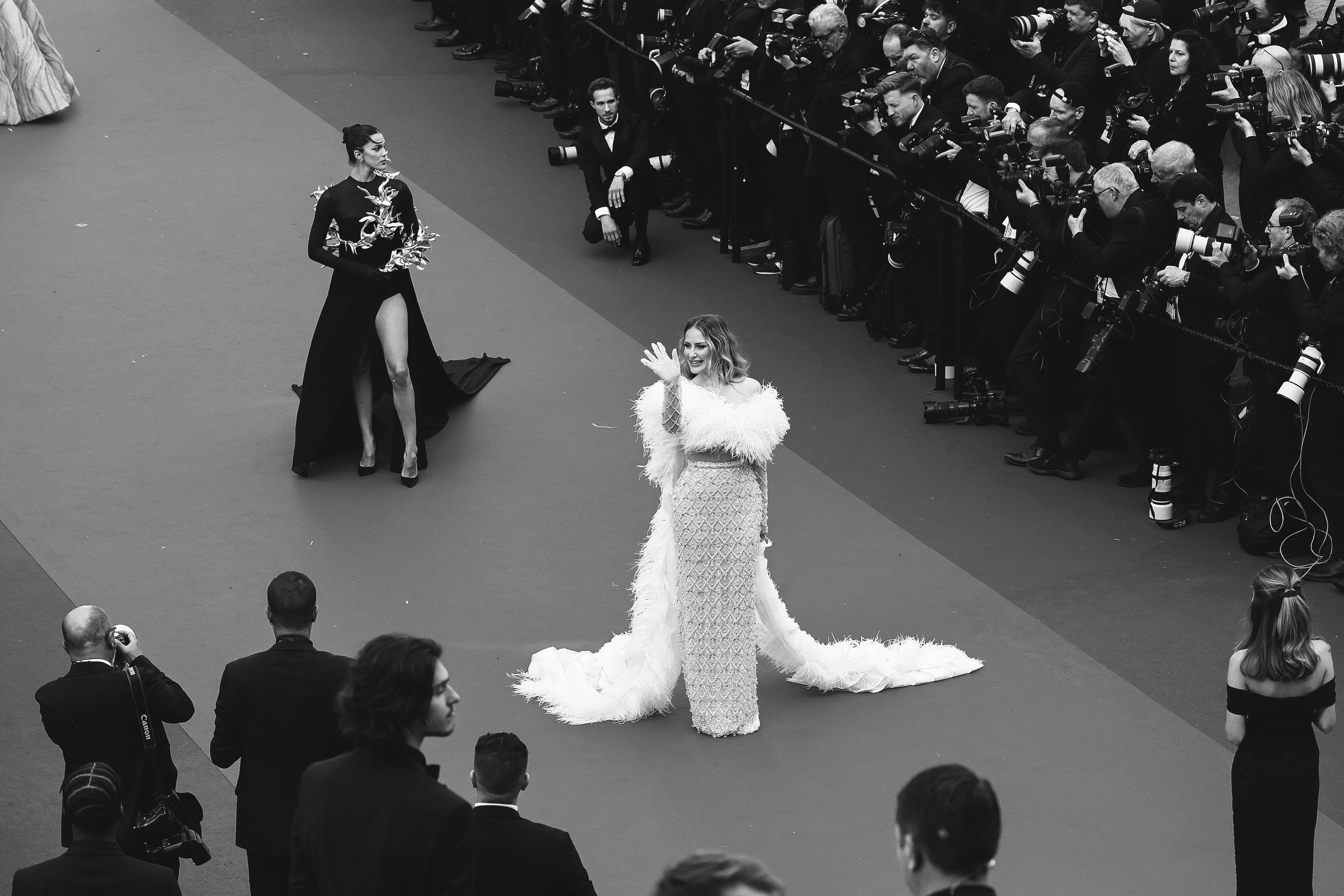
Iris Mittenaere and Caroline Receveur walking down the red carpet at the Cannes Film Festival in 2024 | Source: Getty Images
The Cannes Film Festival is a prestigious event in the world of film. Each year, actors, directors, and producers come together to showcase their work and compete for the Palme d'Or, the highest award given at the festival.
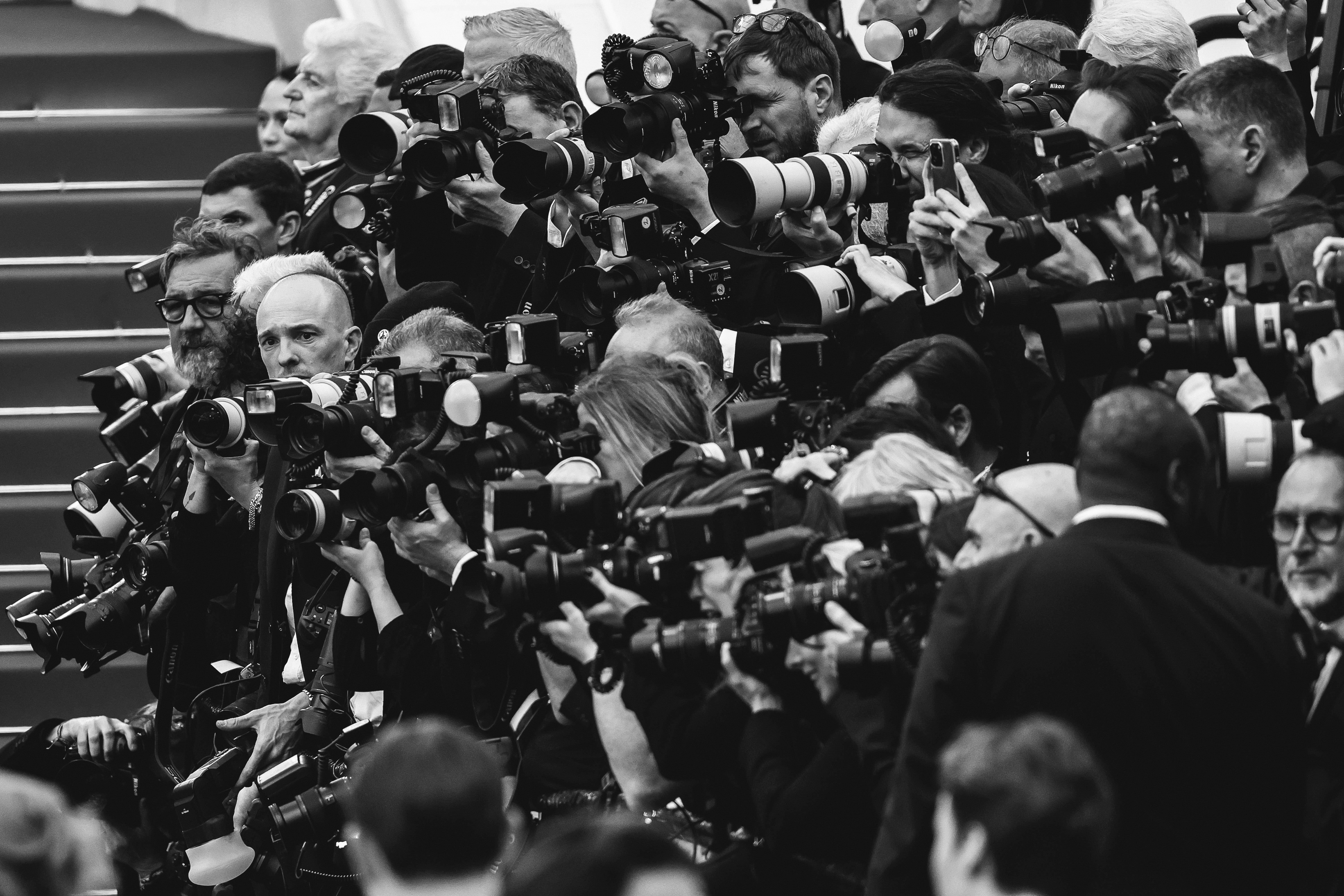
Photographers at the Cannes Film Festival in 2024 | Source: Getty Images
This year marks the 77th edition of the highly anticipated film festival, but to maintain its standard, the rules and regulations have changed over the years. Some changes have sparked considerable controversy online and even led to a few celebrities rebelling against them.
Selfies
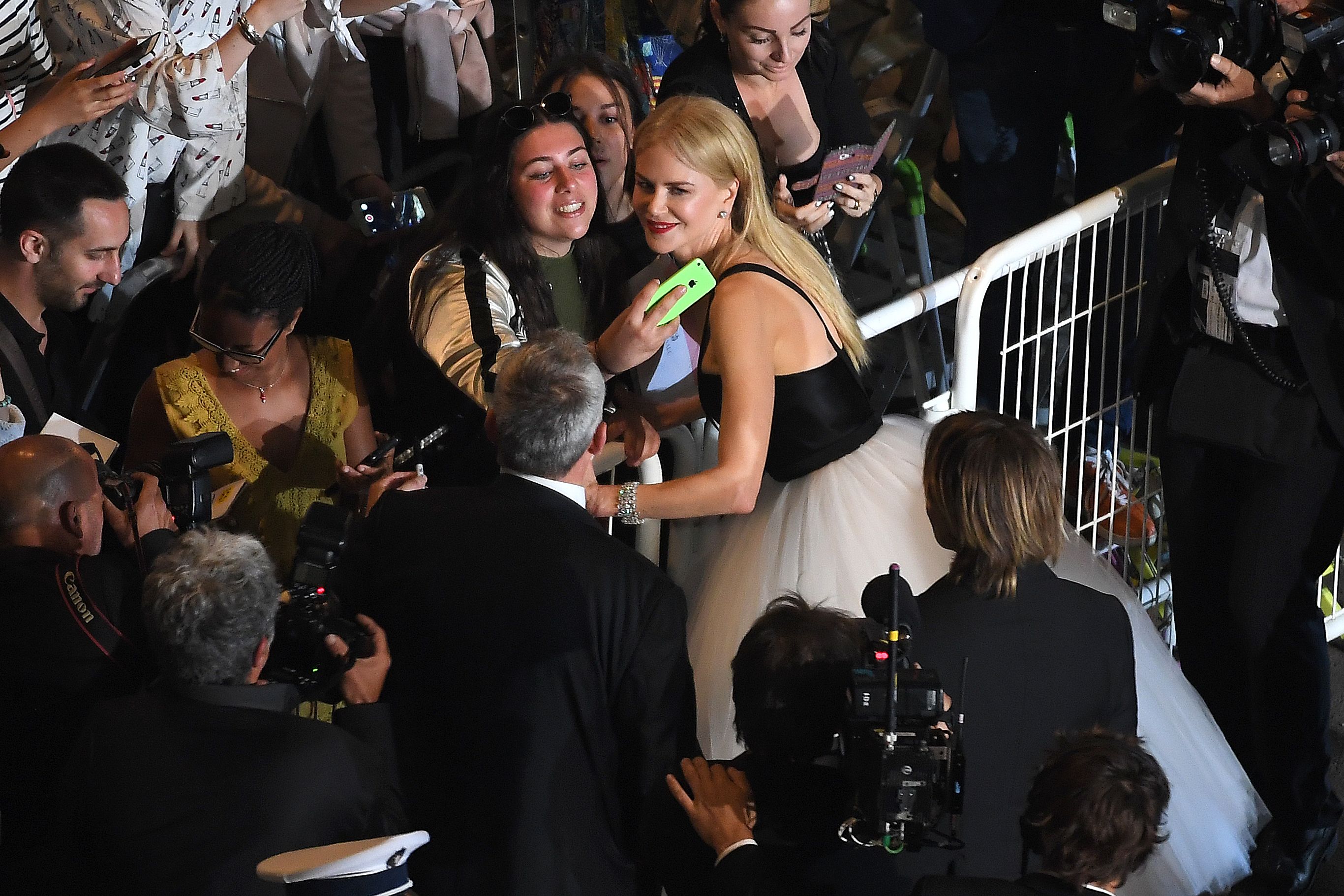
Nicole Kidman taking selfies with fans at the Cannes Film Festival in 2017 | Source: Getty Images
The rule prohibiting selfies on the Cannes red carpet was introduced in 2018 when Thierry Fremaux, the director of the film festival, announced the ban and described selfies as “grotesque and ridiculous.”
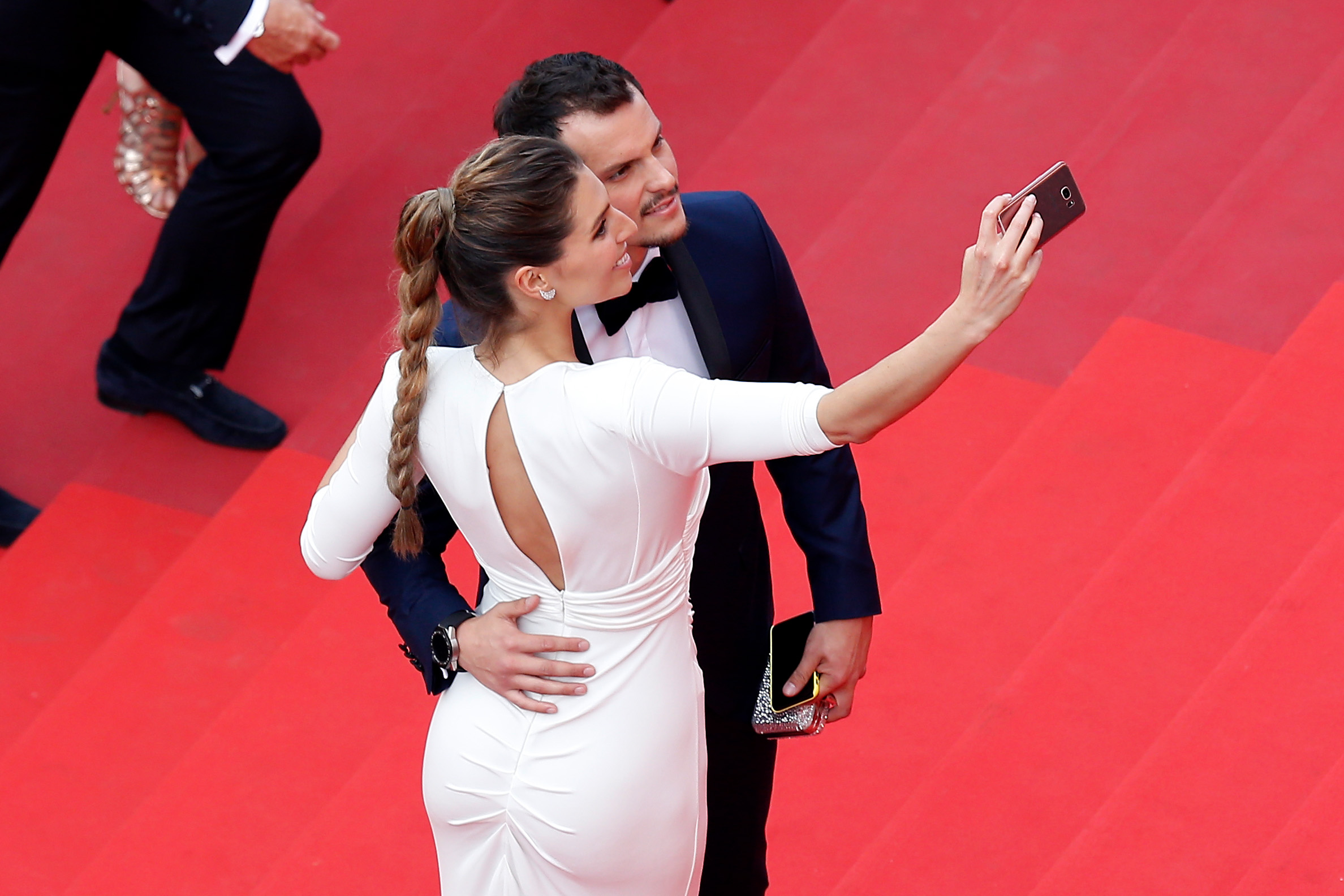
Laury Thilleman and Juan Arbelaez taking a selfie at the Cannes Film Festival in 2017 | Source: Getty Images
It was quite a shocker to have selfies banned in a growing digital world where influencers and celebrities use their phones to connect with their followers. This rule takes away the ability of these content creators to let their followers into the behind-the-scenes of these exclusive and glamorous events.
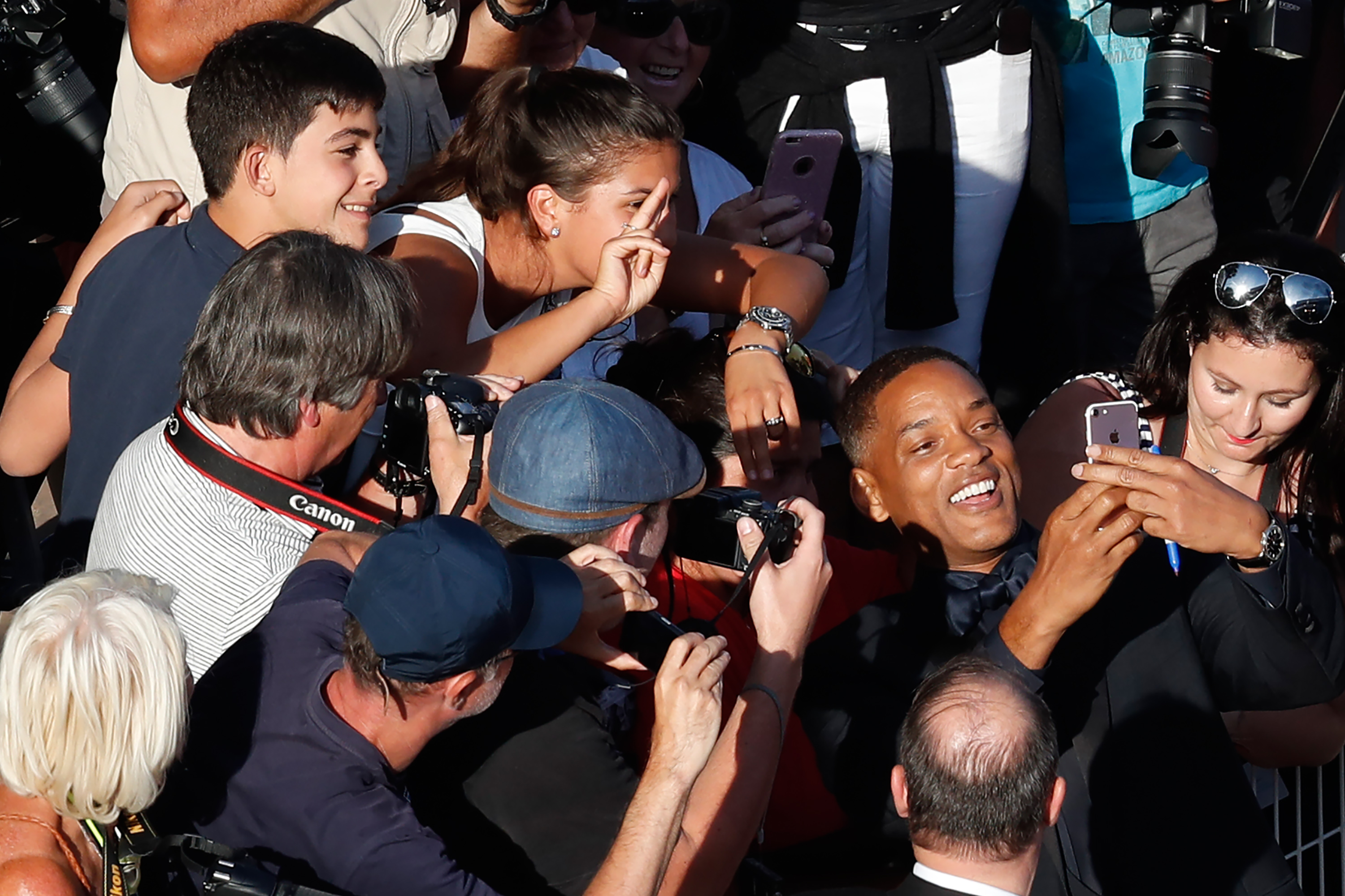
Will Smith taking selfies with fans at the Cannes Film Festival in 2017 | Source: Getty Images
However, Fremaux does not see selfies as helpful in promoting films or the festival in any positive way. According to the director, selfies are just a big distraction. “At the top of the red carpet, the pettiness and the holdup caused by the untimely disorder created by taking selfies hurts the quality of the climbing of the steps,” Fremaux explained.
Netflix

The Netflix logo photographed in 2024 | Source: Getty Images
It seems that the Cannes Film Festival is not trying to keep up with popular culture. For the 71st edition of the annual event, it was announced that movies from Netflix and other streaming services would not be allowed to compete for the Palme d'Or.
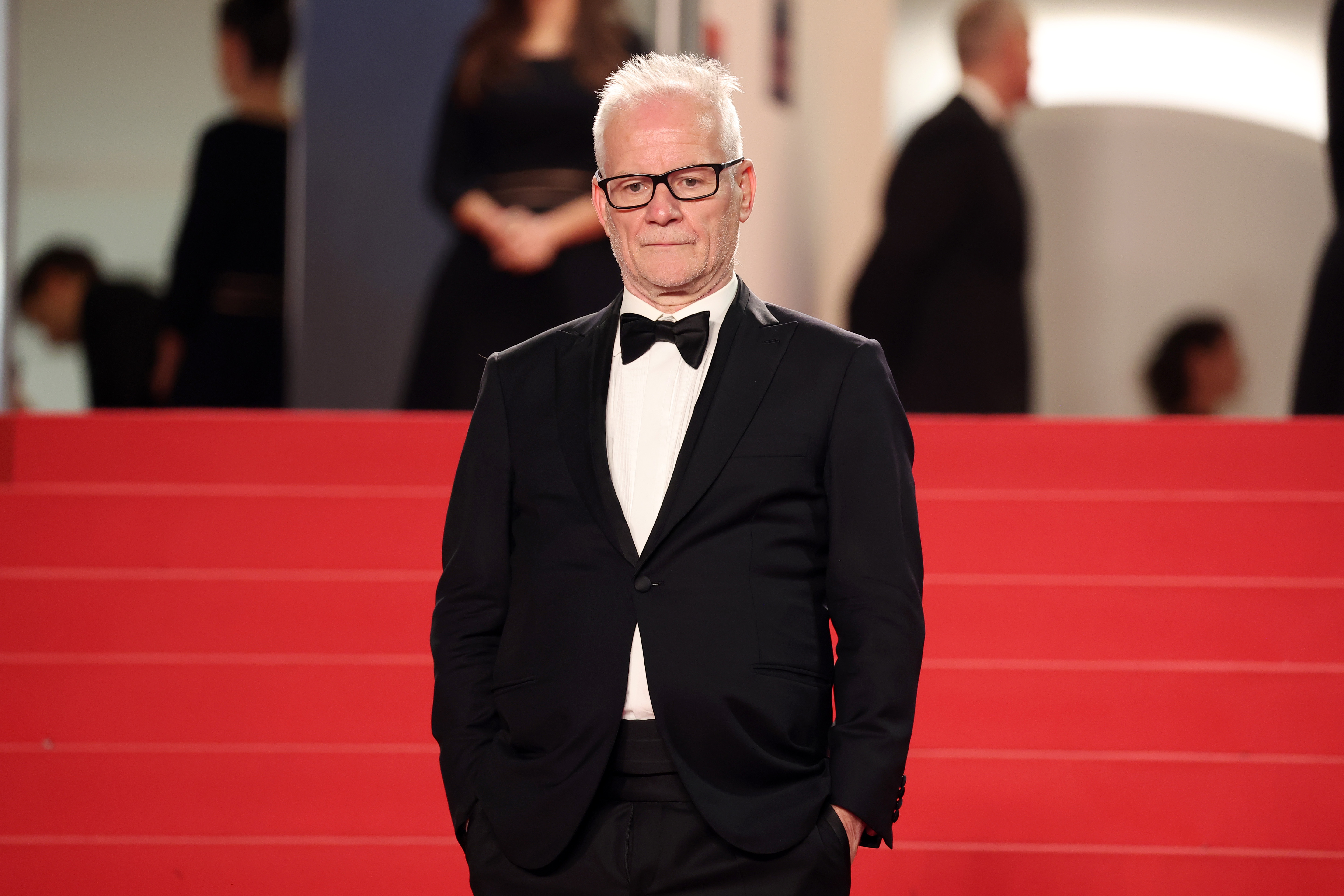
Director of the International Cannes Film Festival Thierry Fremaux at the 2024 Cannes Film Festival | Source: Getty Images
Two Netflix films were allowed to show at the Cannes Film Festival in 2017, Bong Joon-ho’s “Okja” and Noah Baumbach’s “The Meyerowitz Stories,” which Fremaux said caused controversy across the globe.
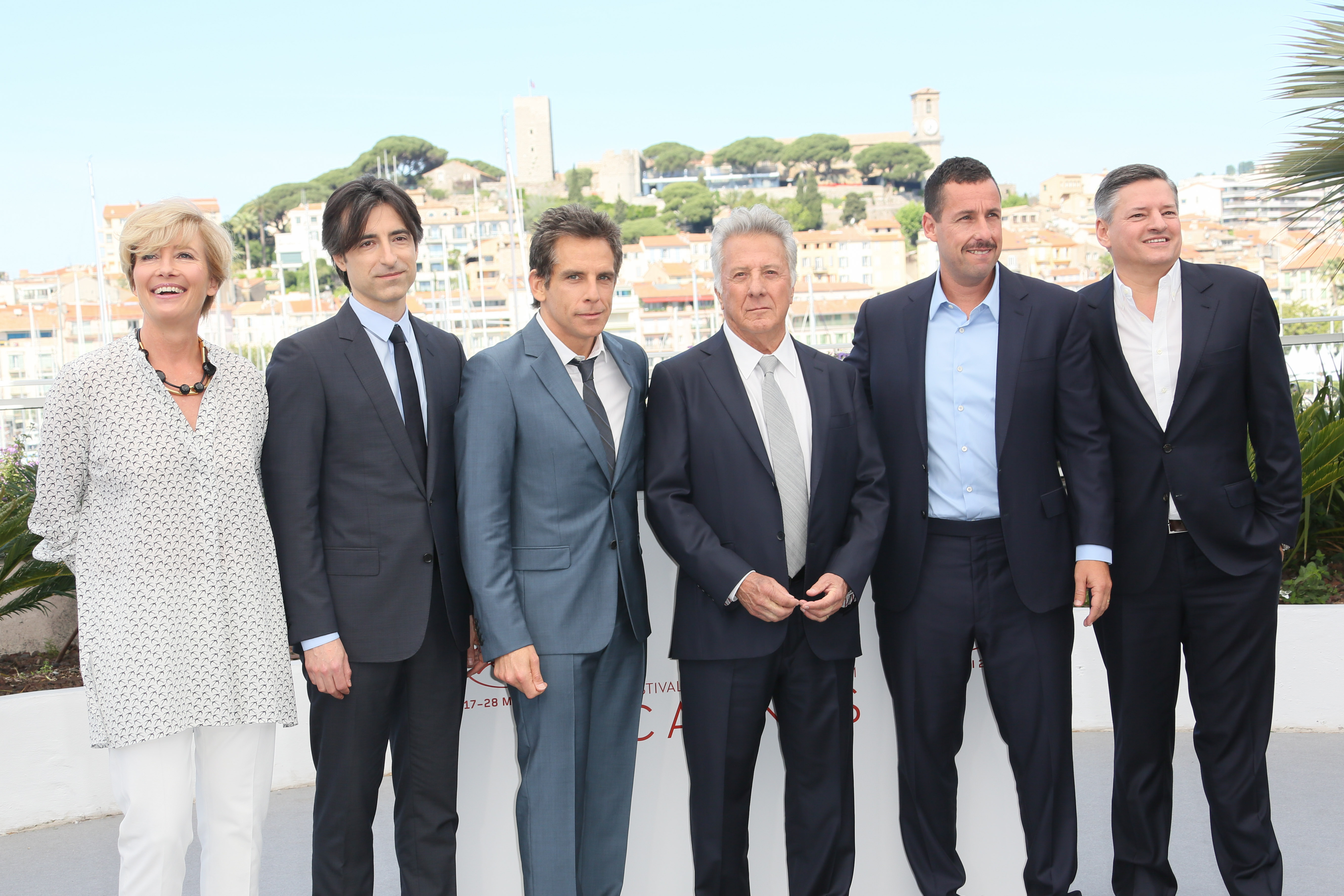
Emma Thompson, director Noah Baumbach, actors Ben Stiller, Dustin Hoffman, Adam Sandler and Netflix CEO Ted Sarandos at the "The Meyerowitz Stories" Photocall at the Cannes Film Festival in 2017 | Source: Getty Images
However, according to reports, the reason for the ban is that Netflix failed to adhere to what is called the French cultural exception, which involves strict rules about when films can be removed from theaters to other platforms such as video-on-demand, television, and streaming.
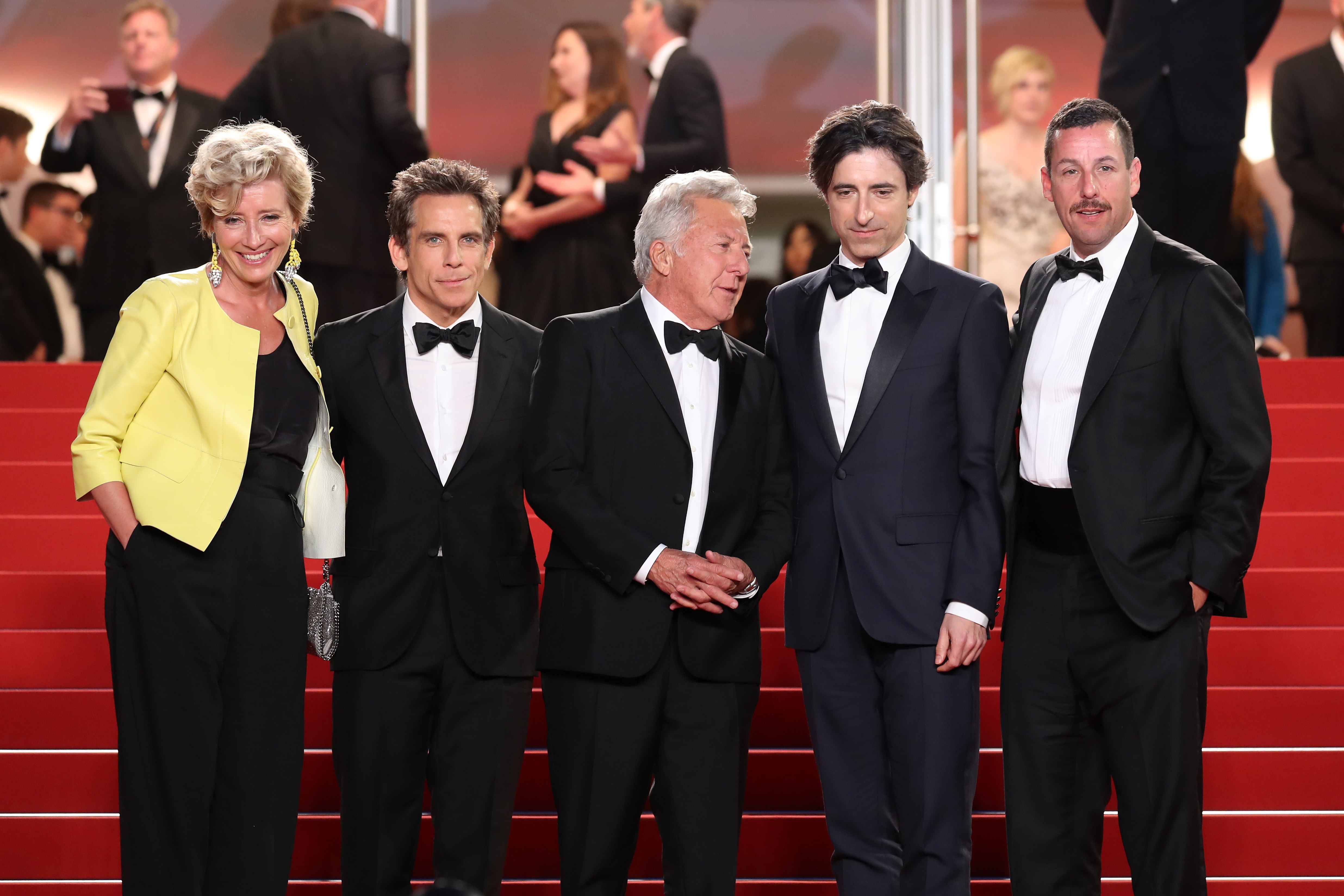
Emma Thompson, Ben Stiller, Dustin Hoffman, Noah Baumbach and Adam Sandler depart at the "The Meyerowitz Stories" screening at the Cannes Film Festival in 2017 | Source: Getty Images
Additionally, the French culture includes taking a certain revenue percentage from the box office, DVD, video on demand, television, and streaming to help finance local and foreign films. But Netflix was not in agreement with the French rules, which offended the French film community.
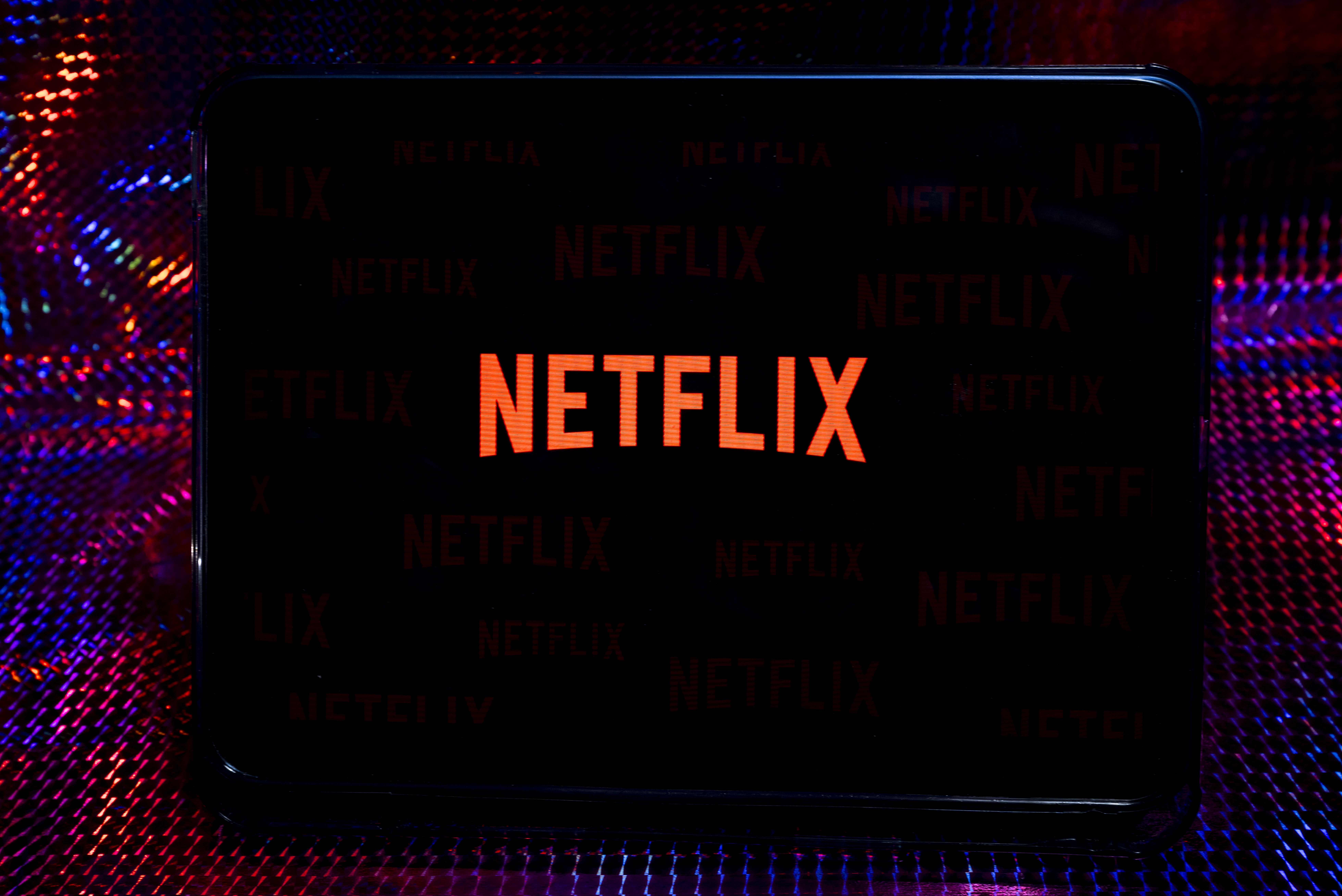
The Netflix logo photographed in 2024 | Source: Getty Images
When it came to removing Netflix films from the festival, Fremaux emphasized that the goal was to uphold the history of cinema, which he believes is not connected to the internet.
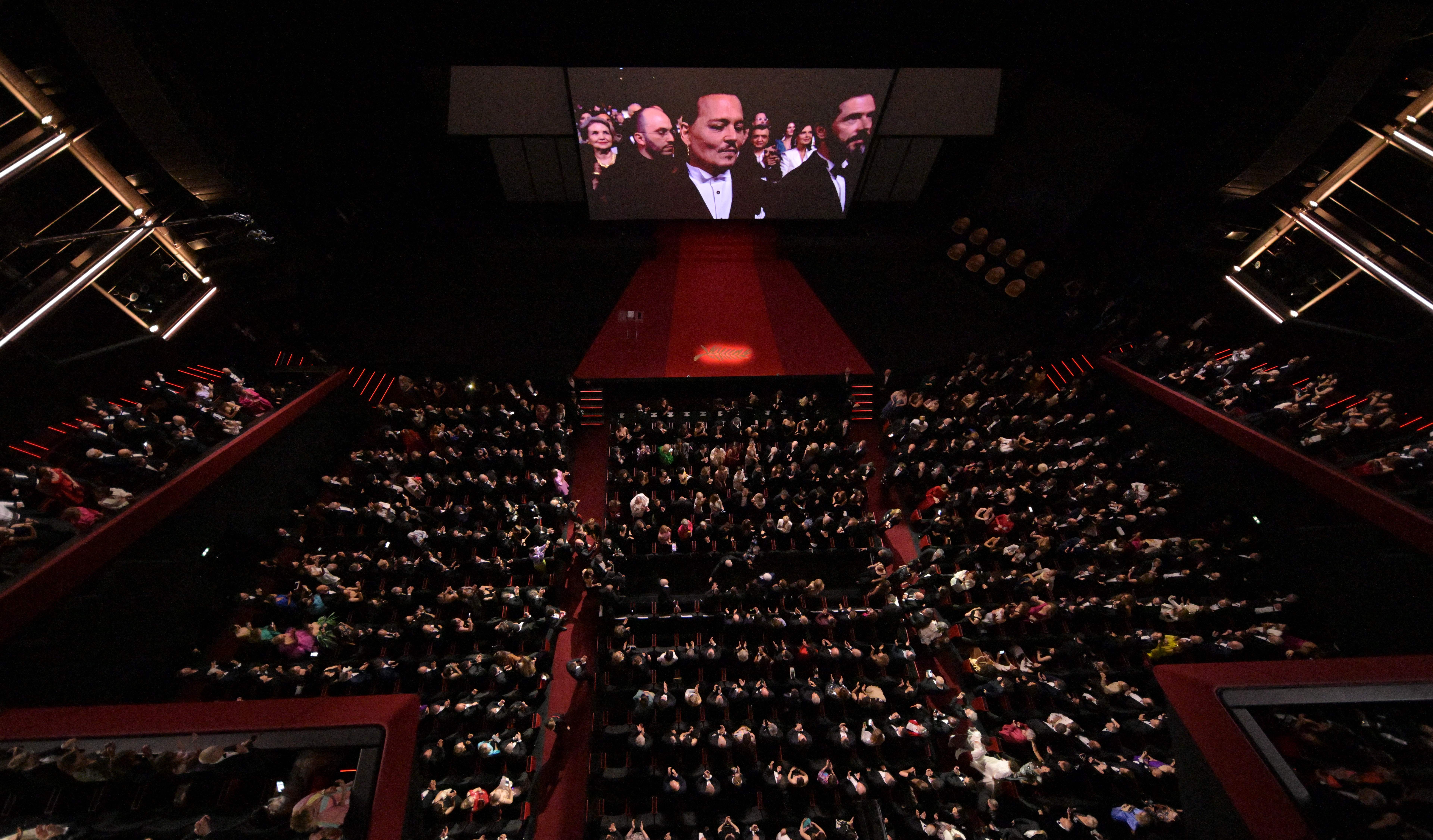
The welcome ceremony at the Cannes Film Festival in 2023 | Source: Getty Images
Rather, Fremaux believes that streaming platforms like Netflix and Amazon are standing in the way of directors making big-budget movies because they create pictures that are not really for TV or theatre. "Cinema [still] triumphs everywhere even in this golden age of series," he said. “The history of cinema and the history of the internet are two different things,” reiterated the film festival director.
Heels
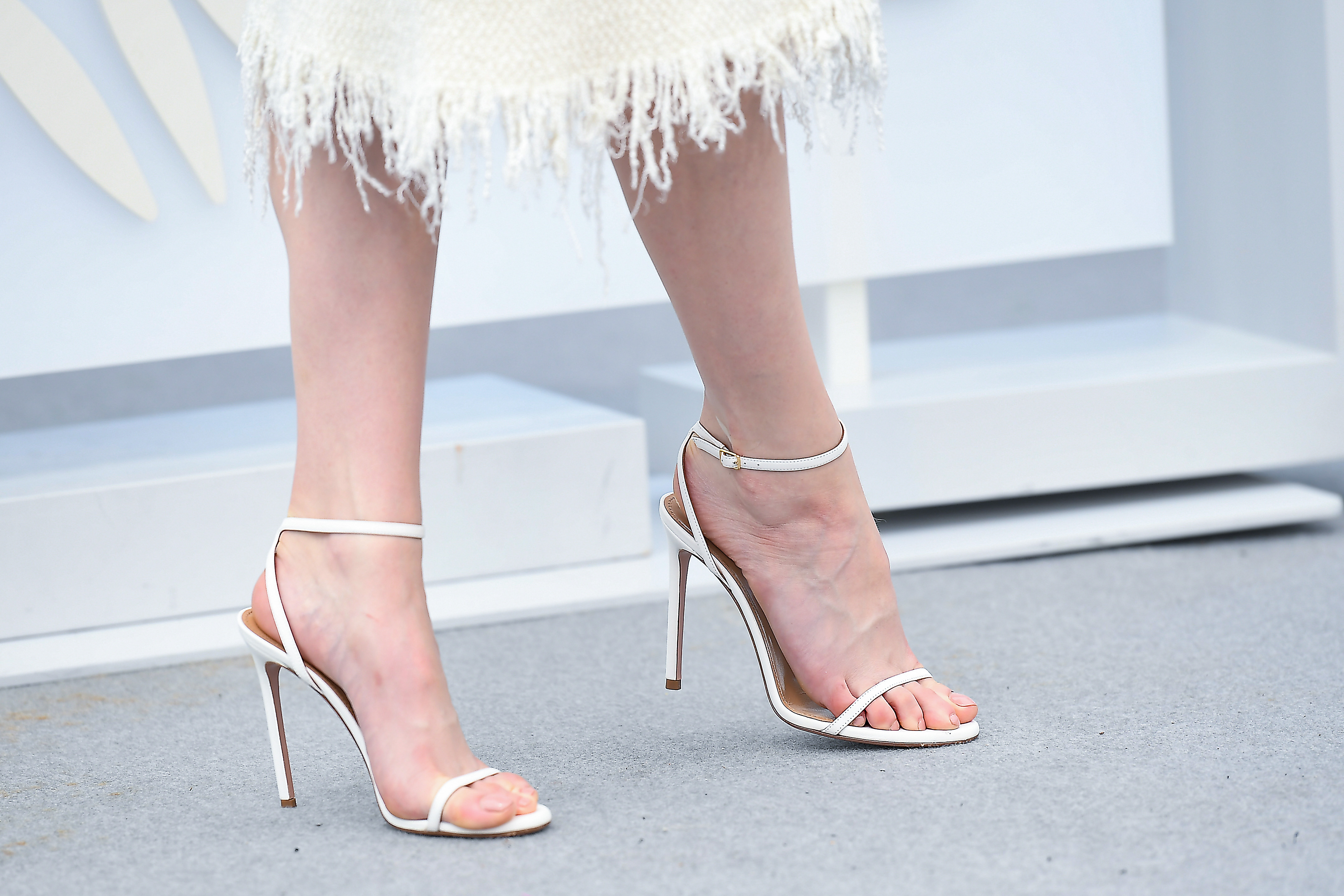
The shoes of Anya Taylor-Joy at the Cannes Film Festival in 2024 | Source: Getty Images
Another controversial rule from the Cannes Festival was the dress code. According to reports, in 2015, several women lined up to see the Todd Haynes film, “Carol,” but were turned away because they were wearing flat shoes.
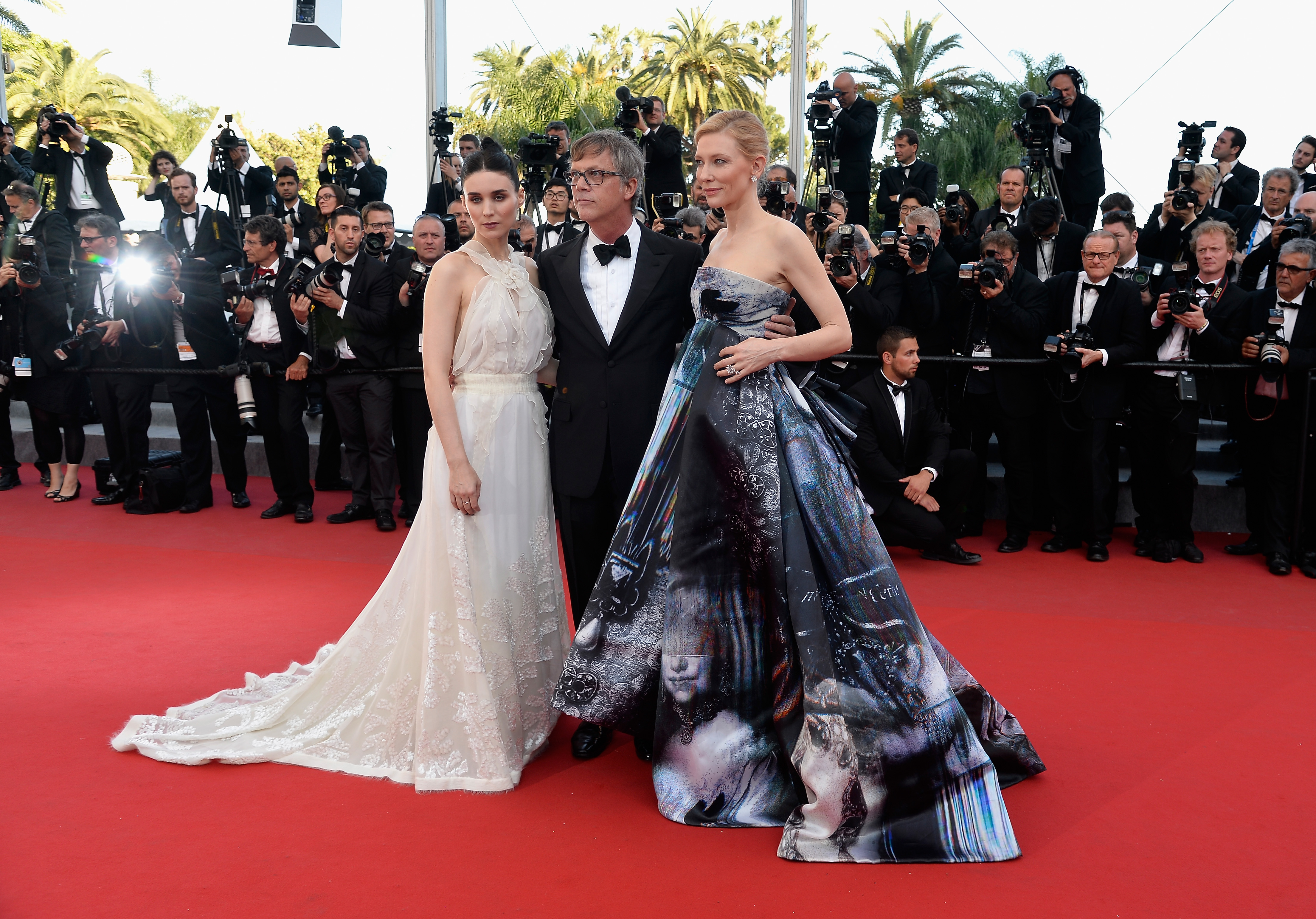
Rooney Mara, director Todd Haynes and Cate Blanchett at the Premiere of "Carol" at the Cannes Film Festival in 2015 | Source: Getty Images
However, Fremaux and the Cannes Festival media team took to Twitter, claiming it was a rumor since the dress code guidelines did not specify how high the women's heels must be. There were reportedly a few incidents where directors who had their work showing at the festival were also turned away because they wore flats.
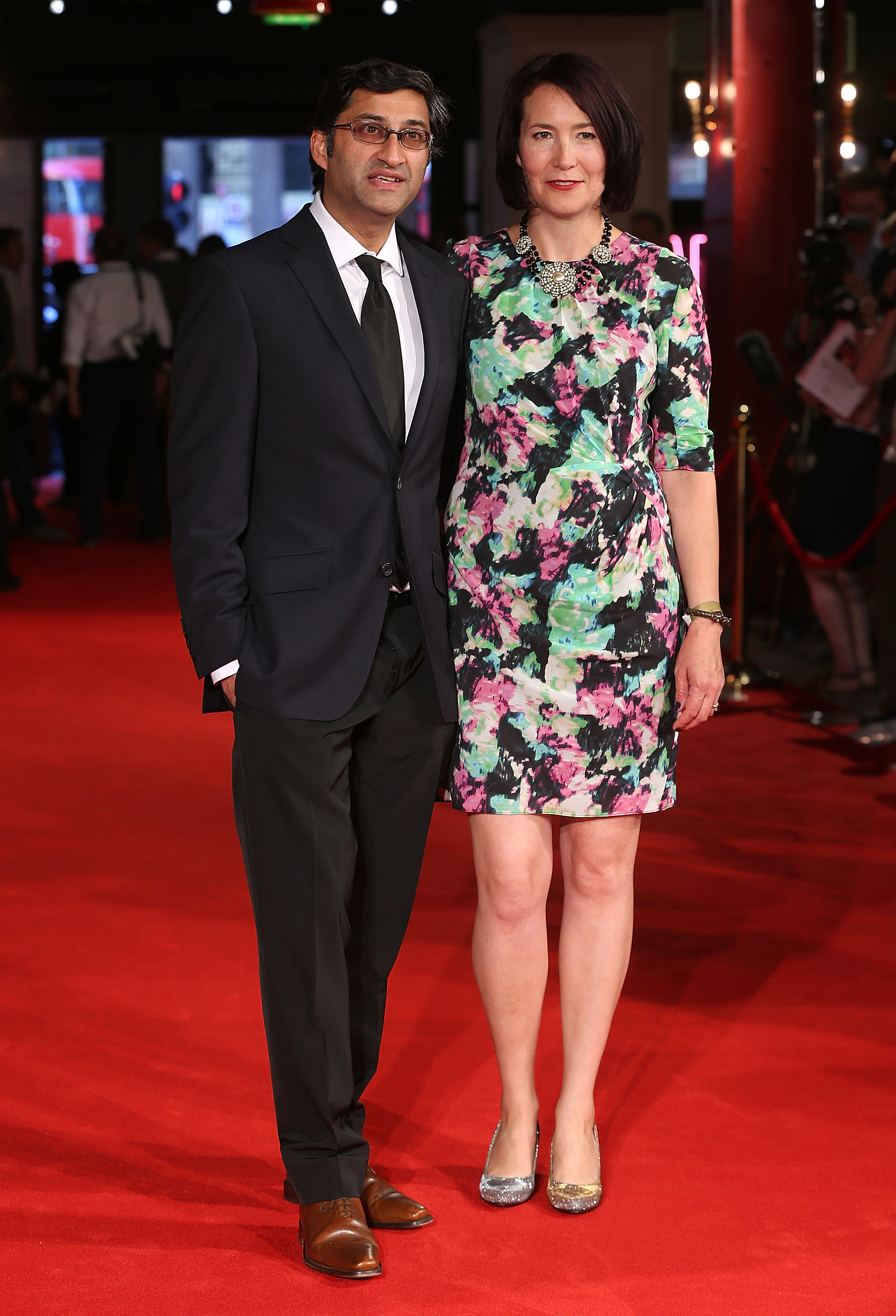
Asif Kapadia and hiswife Victoria Kapadia at the premiere of "Amy" in London in 2015 | Source: Getty Images
One such incident involved Asif Kapadia, the director of the Amy Winehouse documentary "Amy." Kapadia shared that his wife was initially barred from a premiere because her heels were deemed not high enough. Although his wife was eventually allowed in, it still raised many eyebrows.
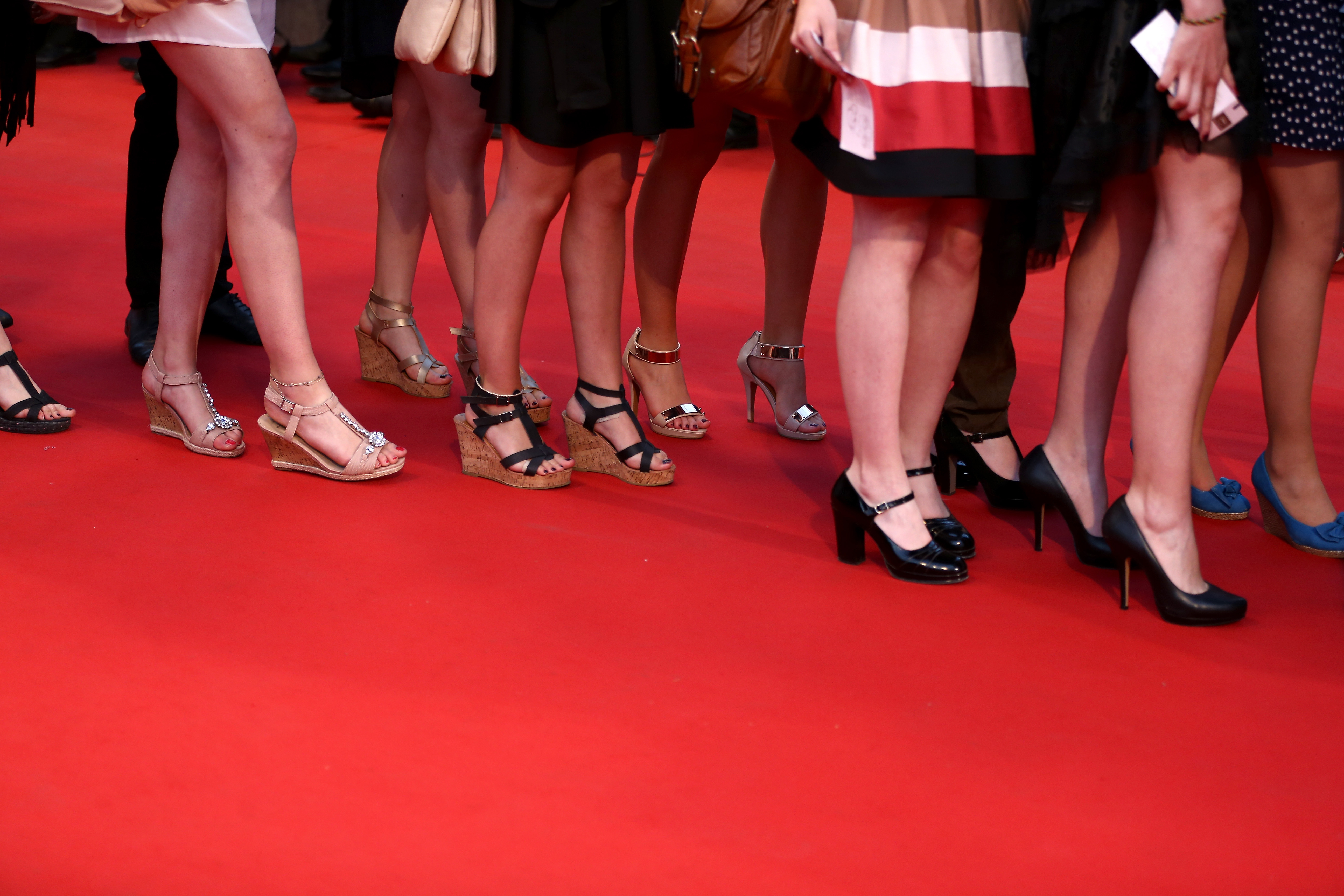
Shoes women wore at the premiere of "The Sea Of Trees" at the Cannes fIlm festival in 2015 | Source: Getty Images
Another alarming incident involved Danish producer Valeria Richter, who was stopped multiple times while trying to enter the premiere of "The Sea of Trees." Richter had part of her left foot amputated and chose to wear flats for mobility and comfort, but it again raised questions about sensitivity toward people with special needs.
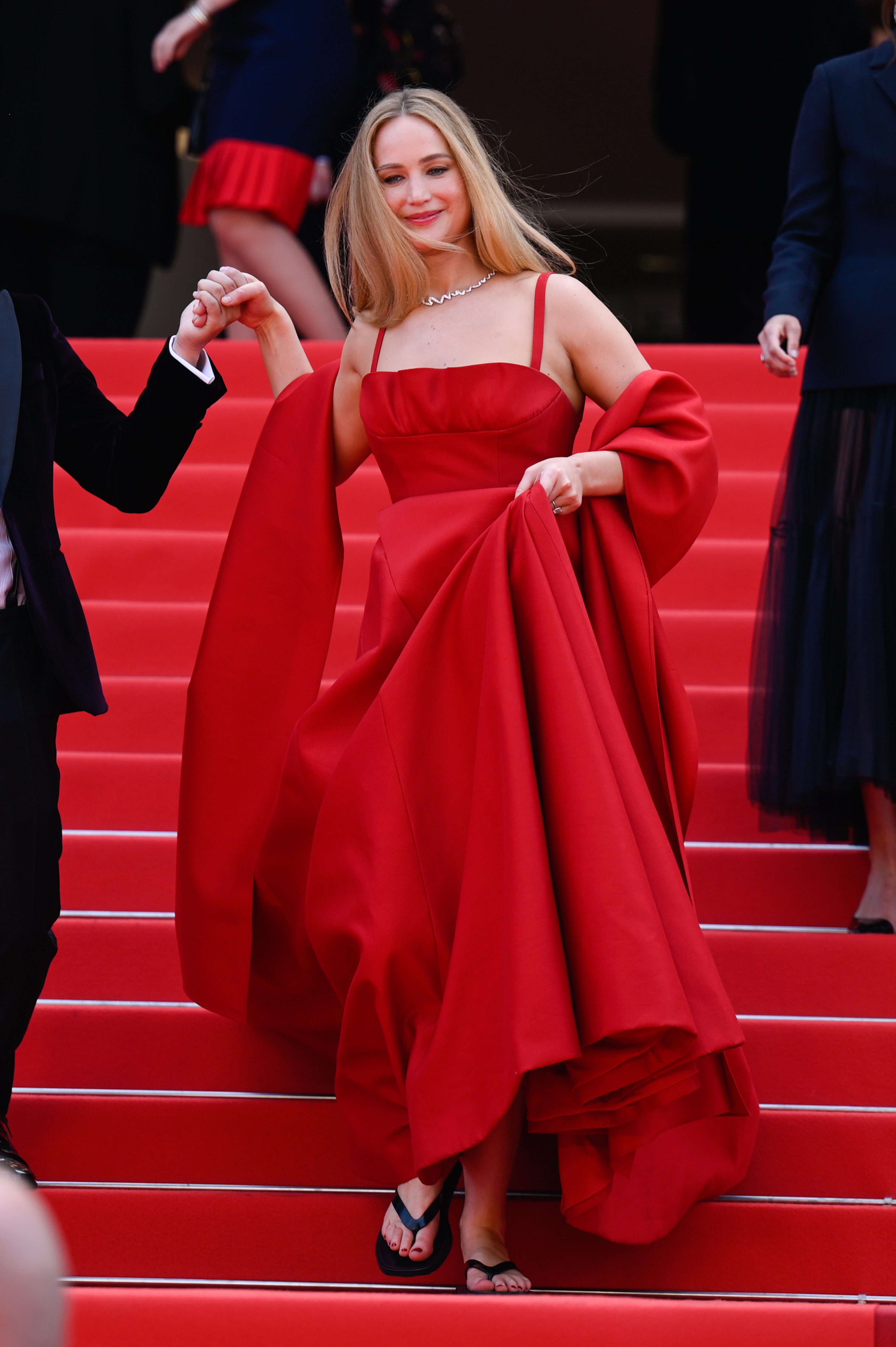
Jennifer Lawrence at the Cannes Film Festival in 2023 | Source: Getty Images
The conversation around the dress codes turned into a broader and deeper debate about how the festival treated women. Therefore, high-profile actresses like Kristen Stewart and Jennifer Lawrence took a feminist stance and pushed back against the high heels mandate.
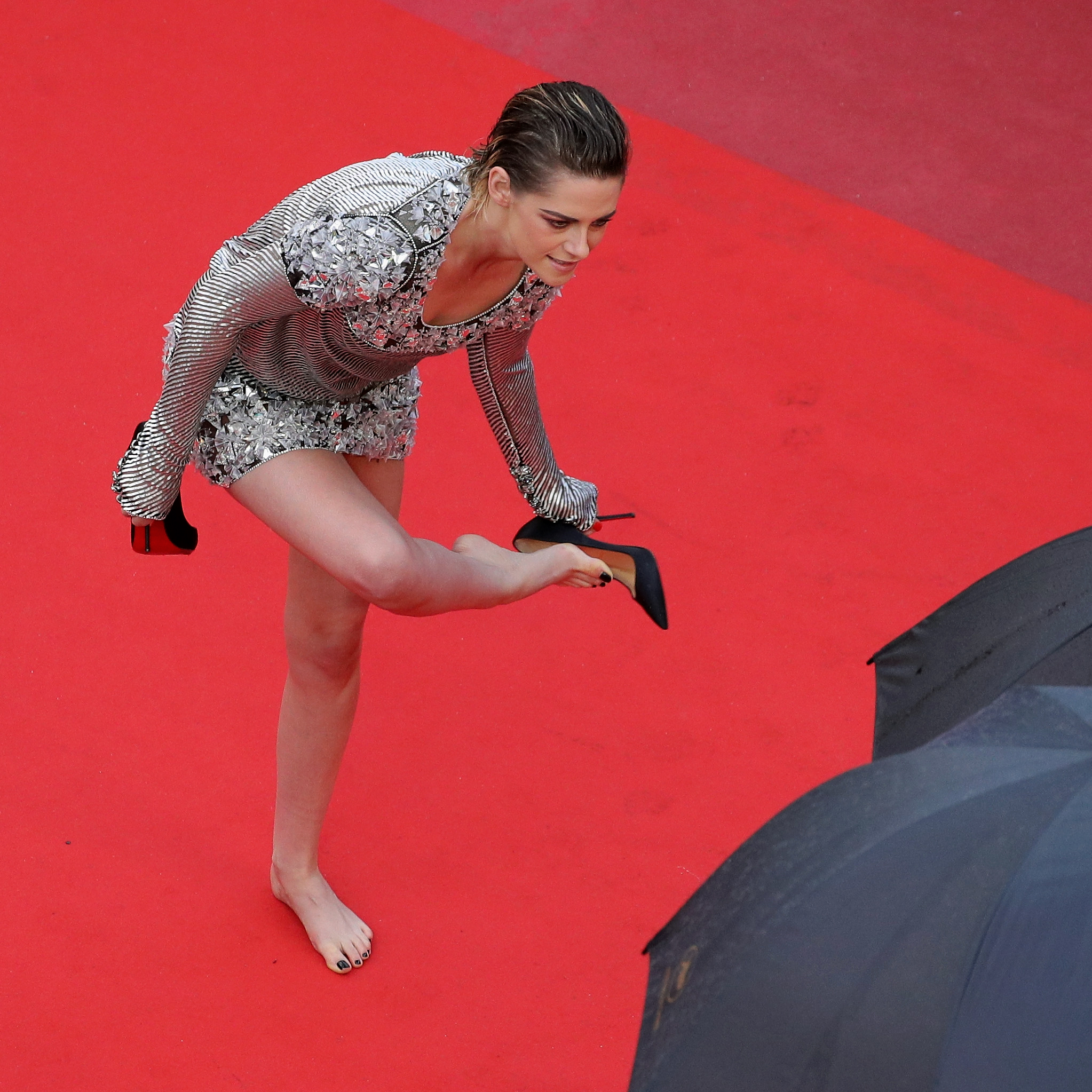
Kristen Stewart taking off her shoes at the Cannes Film Festival in 2018 | Source: Getty Images
Stewart famously removed her high heels on the red carpet in protest, and Lawrence opted for comfort by wearing flip-flops, despite the glamorous setting.
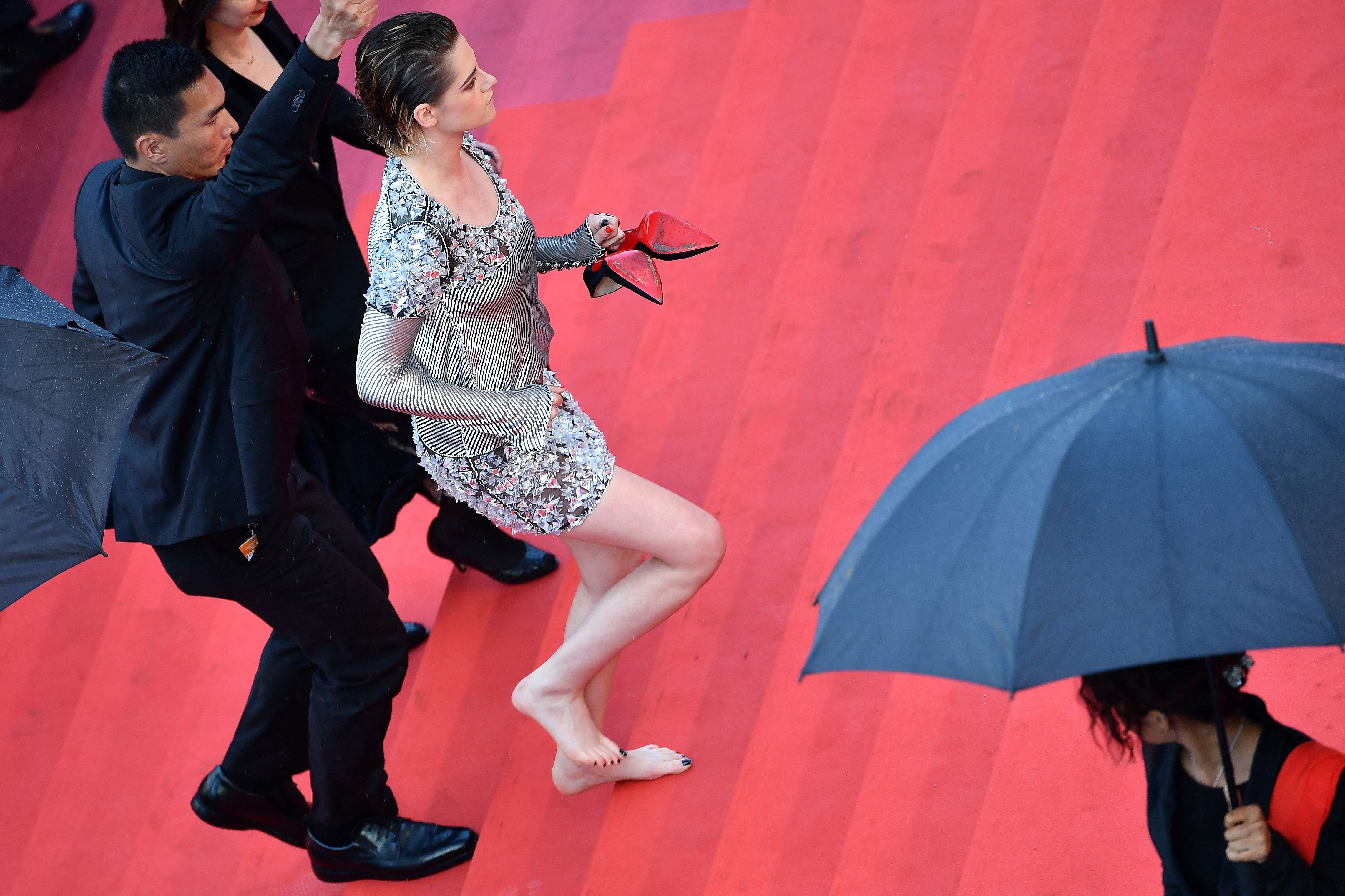
Kristen Stewart walking barefoot at the Cannes Film Festival in 2018 | Source: Getty Images
Emily Blunt, another acclaimed actress, expressed her disappointment during a press conference, and said, “Everyone should wear flats, to be honest. We shouldn’t wear high heels.” The festival responded to the criticism by denying that there was ever an official ban on heels. Fremaux said the issue was just being blown out of proportion.
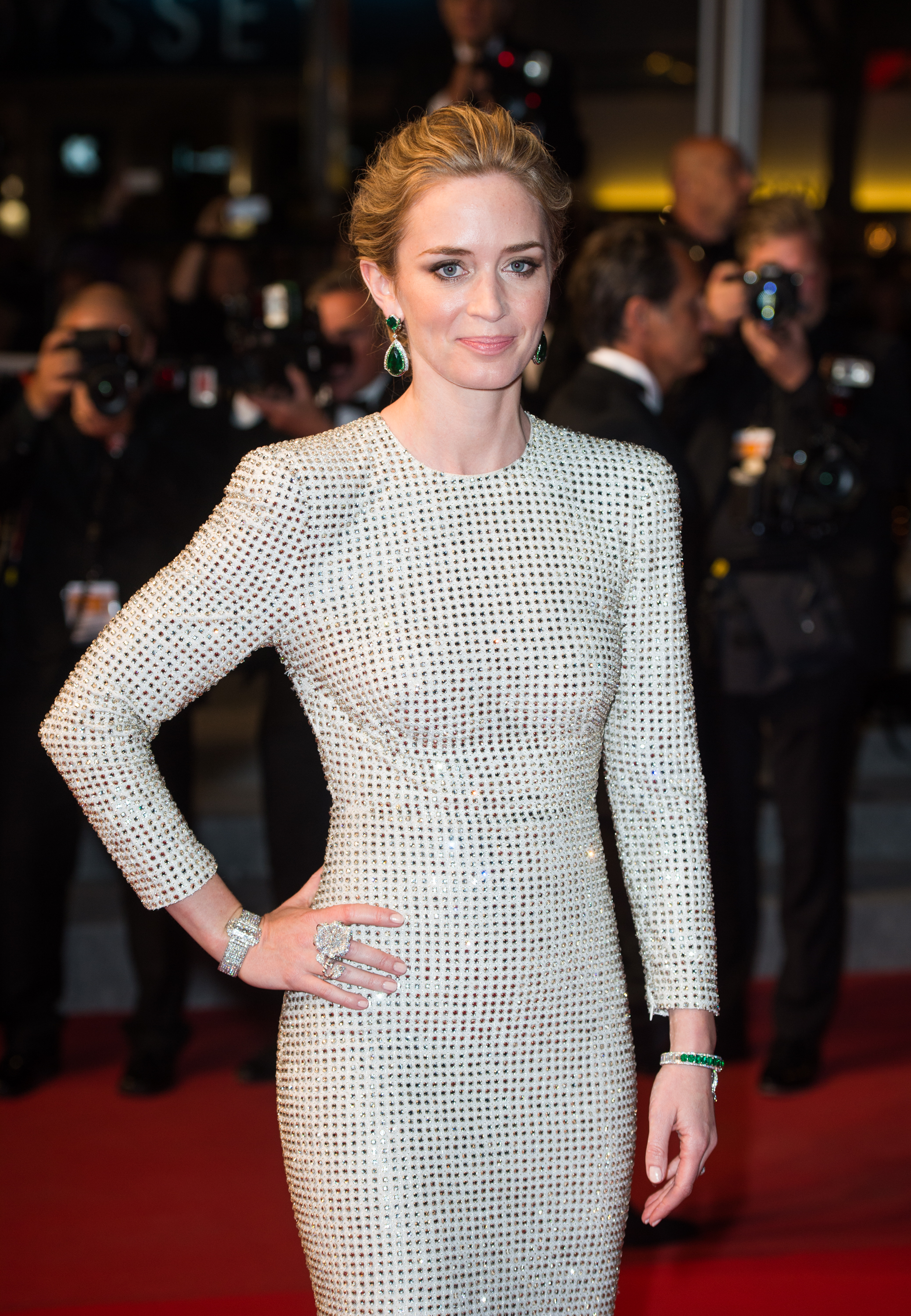
Emily Blunt at the Cannes Film Festival in 2015 | Source: Getty Images
This year, the dress code has not changed. The Cannes Film Festival remains one of the most glamorous festivals, and according to the website, the cocktail and black-tie attire must still be implemented, paired with “elegant shoes, with or without heels, are required. Trainers are forbidden.”
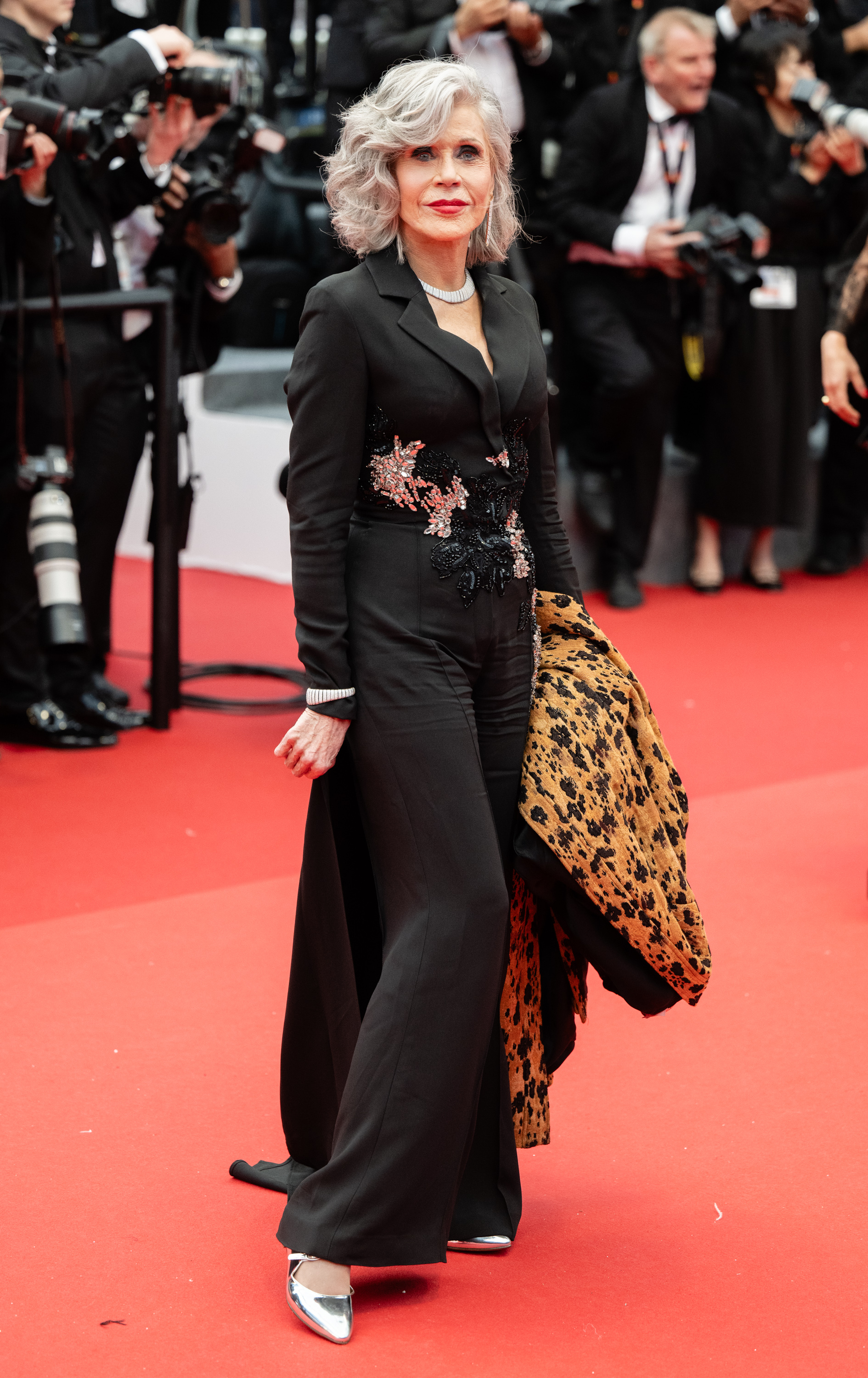
Jane Fonda at the Cannes Film Festival in 2024 | Source: Getty Images
But actresses like Jane Fonda are still pushing the boundaries. The renowned actor walked the Cannes red carpet wearing silver metallic flats.
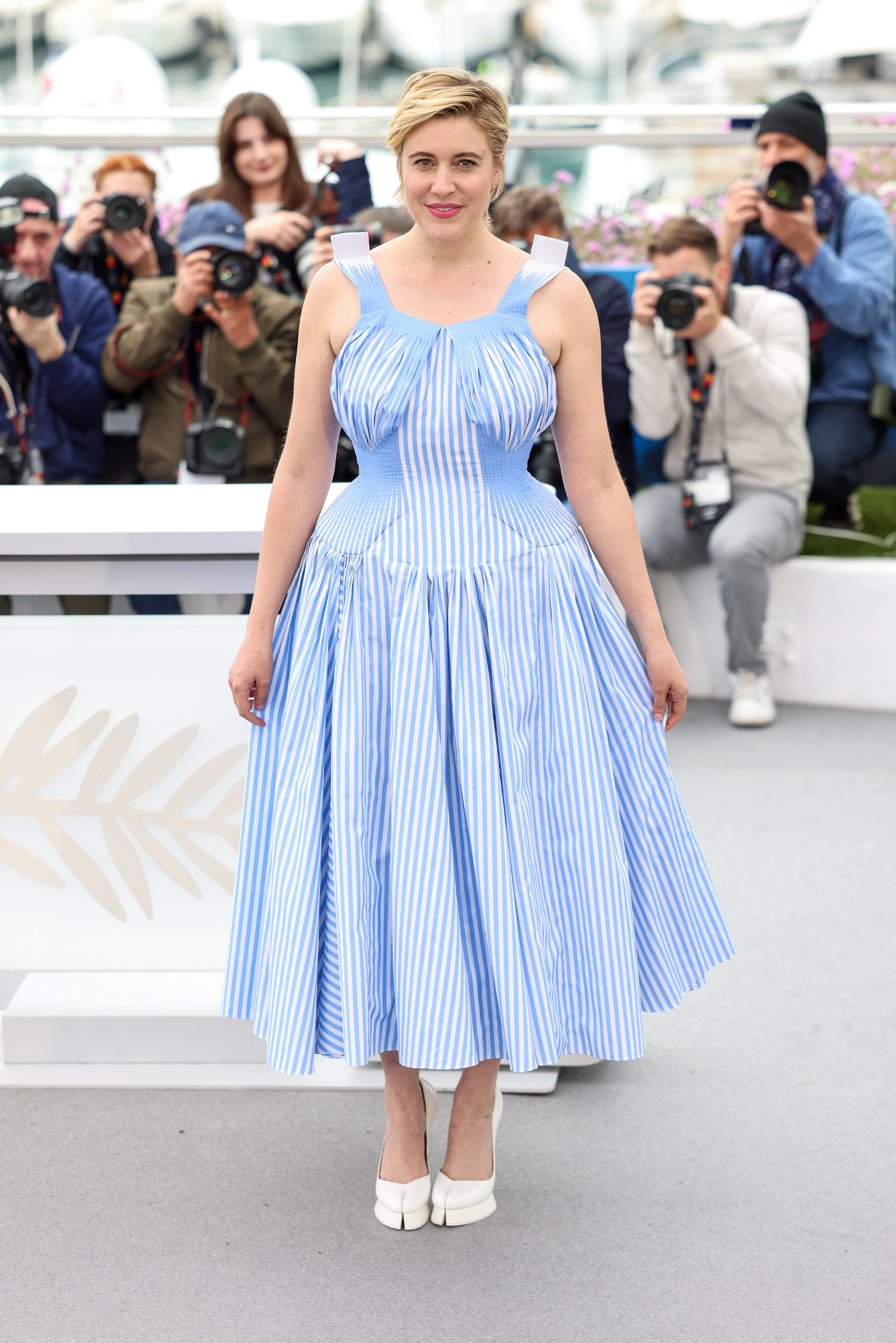
Greta Gerwig at the Cannes Film Festival in 2024 | Source: Getty Images
While actress Greta Gerwig wore heels, she went for a pair that was quite unconventional. Gerwig stepped out wearing a full Maison Margiela outfit with white Tabi pumps that resembled hooves.
Photographers
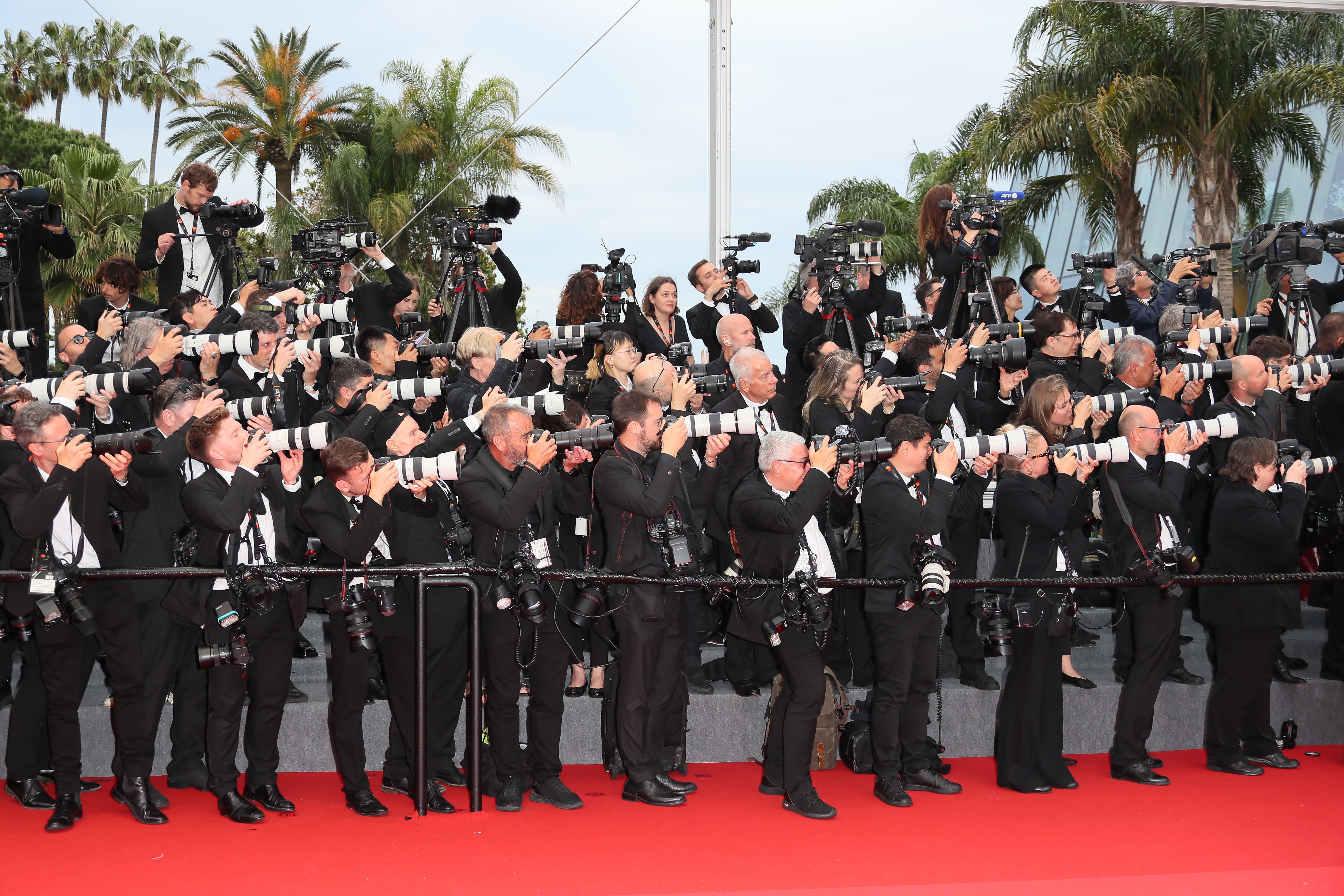
Photographers at the Cannes Film Festival in 2024 | Source: Getty Images
It turns out the strict dress code does not only apply to the actors, producers, and directors, but also to the photographers standing on the sidelines. Some male photographers have said that women can get away with wearing a chic top with a skirt or pants, but men are expected to run and sweat in tuxedos.
Spoilers
At the Cannes Film Festival, the timing and rules around film screenings have always been strict and designed to protect the premiere's impact and suspense. Traditionally, press screenings for the biggest films occurred in the morning, hours before the glamorous evening gala premieres.
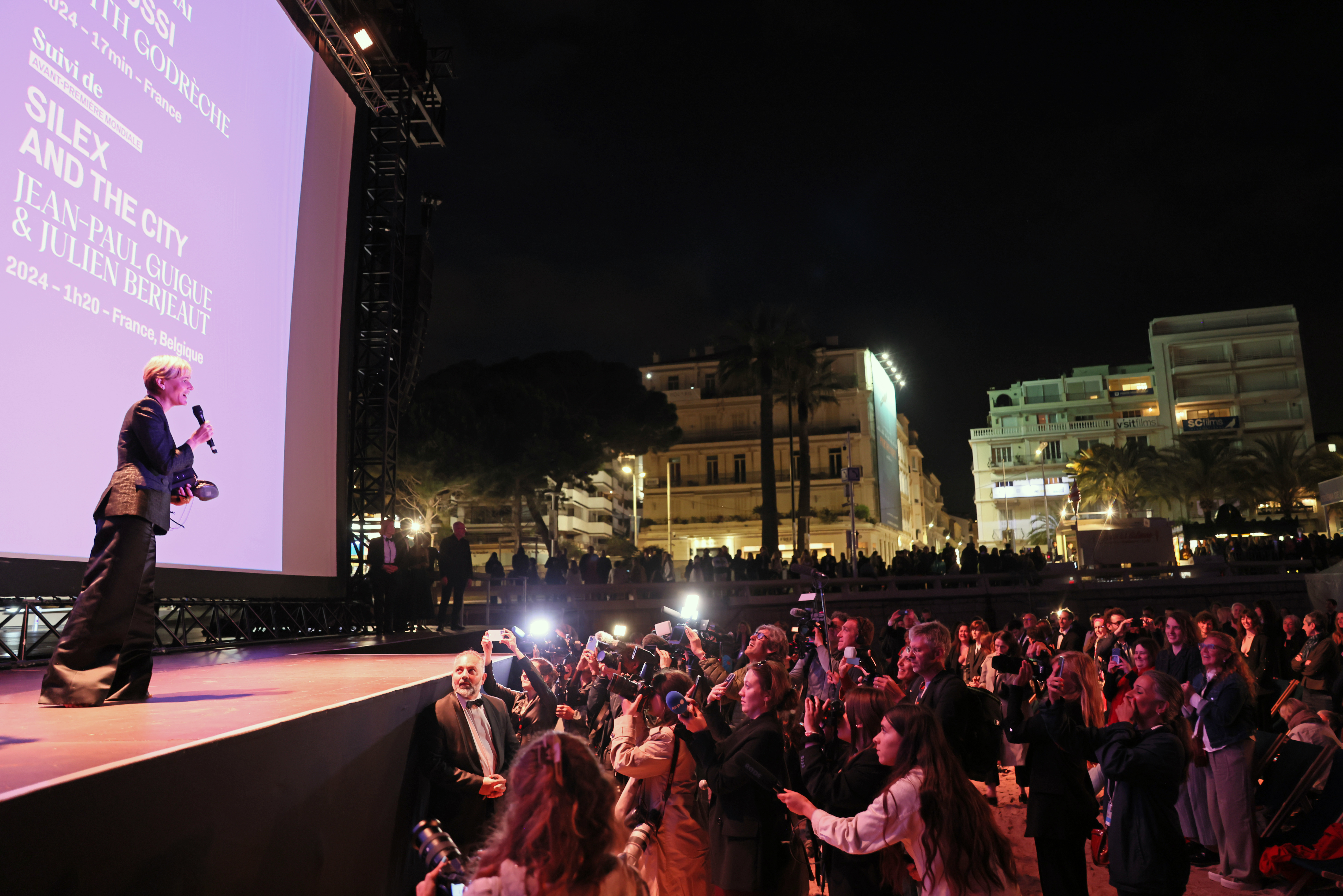
A screening of the movie "Moi Aussi" at the Cannes Film Festival in 2024 | Source: Getty Images
This setup, however, had a major downside: the possibility of a film being negatively reviewed by critics before its official premiere. In response to this, this Festival made significant changes to its screening schedule.
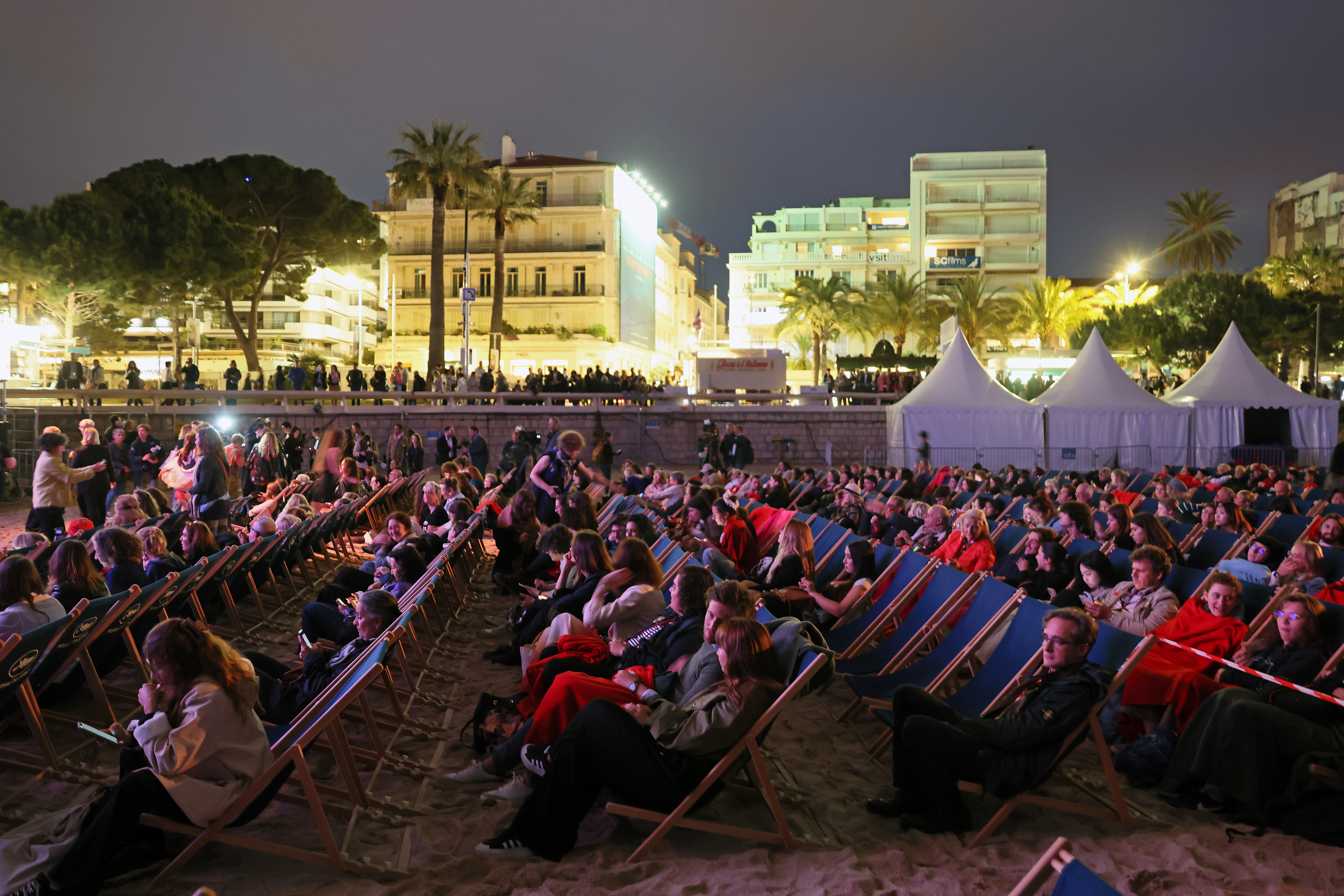
A screening of the movie "Moi Aussi" at the Cannes Film Festival in 2024 | Source: Getty Images
Last year, for example, press screenings were delayed until after the premieres had started. This change was intended to ensure that no premature reviews could influence the event's atmosphere or spoil the experience for attendees.
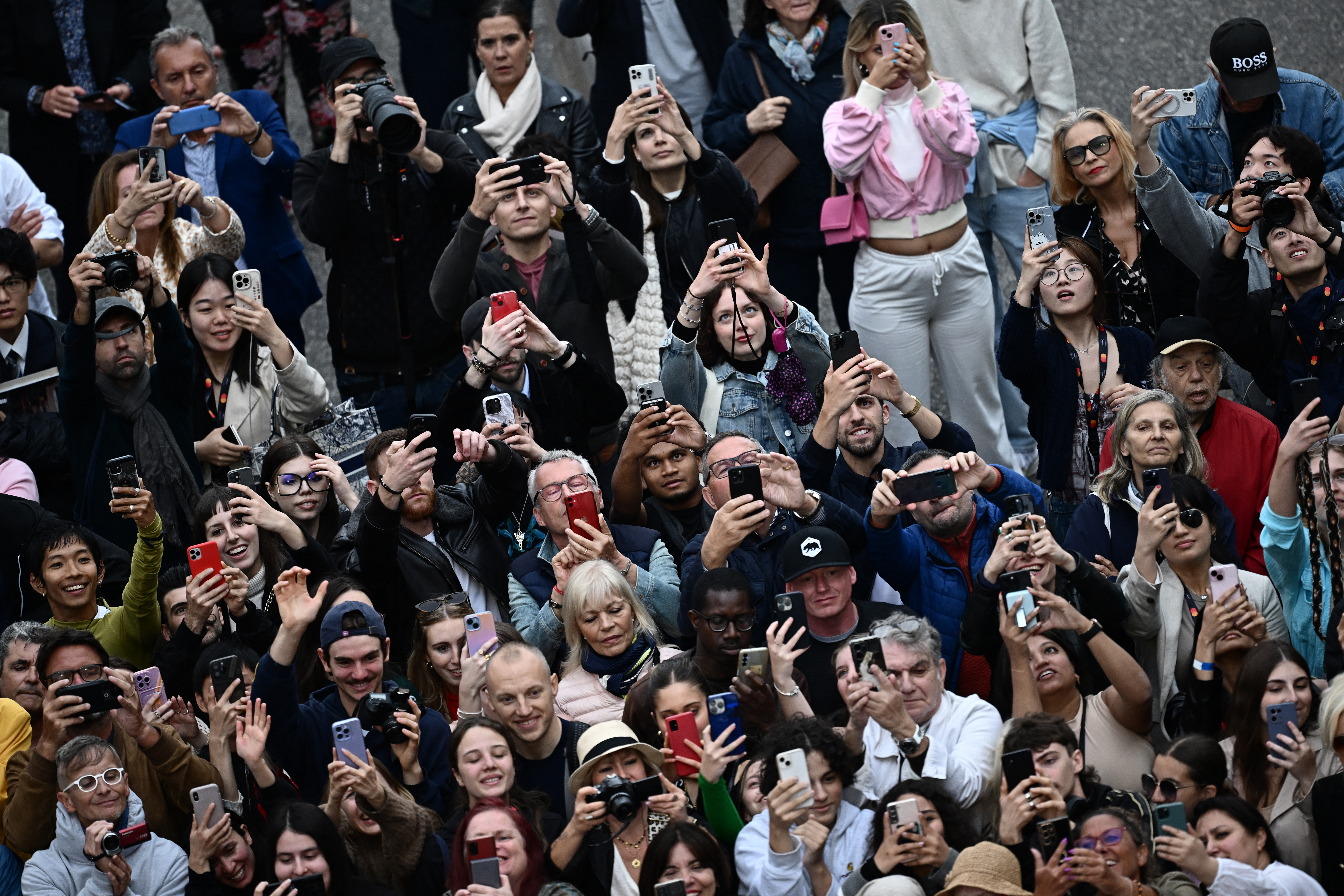
A screening of the film "Furiosa: A Mad Max Saga" at the Cannes Film Festival in 2024 | Source: Getty Images
This year, the festival has tweaked the rules again, allowing some critics to attend morning screenings while others are scheduled for the afternoon. However, there is still a very strict rule in place: no one is allowed to discuss or tweet about the films until after their premiere.
